BART’s February schedule change will impact weekdays and Sundays
Thursday, January 17th, 2019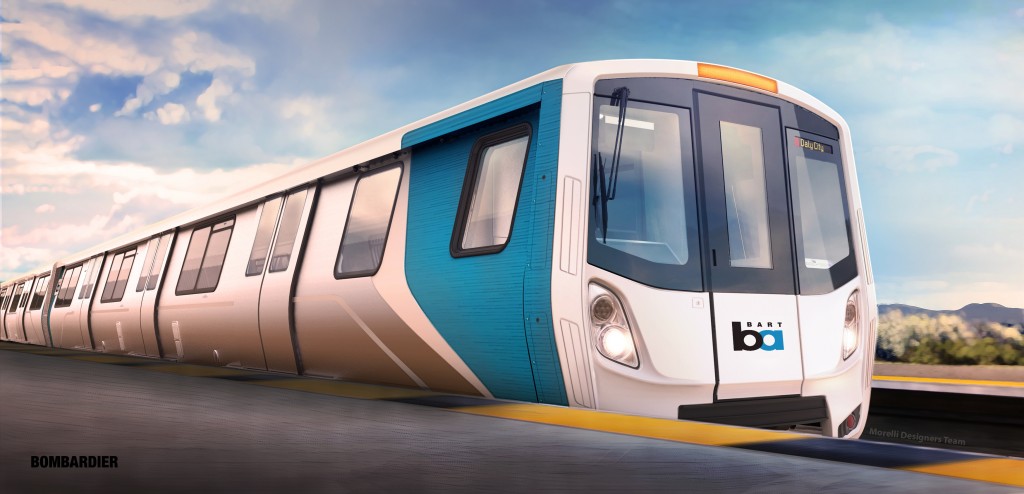 BART is making major schedule changes beginning February 11th to accommodate Measure RR funded improvements to our infrastructure to keep BART safe and reliable. Projects to upgrade our electrical power system in downtown San Francisco and the Transbay Tube Seismic Retrofit require adjustments to our schedules. The Fleet of the Future roll out is also allowing us to expand some service and run longer trains.
BART is making major schedule changes beginning February 11th to accommodate Measure RR funded improvements to our infrastructure to keep BART safe and reliable. Projects to upgrade our electrical power system in downtown San Francisco and the Transbay Tube Seismic Retrofit require adjustments to our schedules. The Fleet of the Future roll out is also allowing us to expand some service and run longer trains.
Riders are encouraged to check before you go. Download the official BART app or check the Trip Planner to see how these changes impact your trip.
Weekday Changes
To retrofit the Transbay Tube, we need to open at 5am on weekdays- that’s one hour later. Visit www.bart.gov/earlybirdexpress for bus service alternatives during the 4am hour. We will also be single-tracking trains through the Tube on weeknights for this project. Impacts from this project include:
- Weekdays after 9pm, trains will run every 24 minutes instead of 20 because of single tracking.
- On Friday evenings, trains will be added to the schedule after 8pm to the Green, Red, and Yellow lines to reduce wait times and increase capacity.
- The first train from Daly City (5:03 am) to Antioch will skip from MacArthur directly to Pittsburg/Bay Point. The train will not pick up or drop off passengers between these stations. The next train from Daly City (5:11 am) will make all stops.
· Weekday service improvements include:
- New direct Millbrae to SFO service on weekdays from 6:30 am to 9 pm every 30 minutes.
- Early morning/late-evening trains will now be longer.
- A Fleet of the Future train will run as part of the schedule on each transbay line and some trains will be lengthened thanks to the arrival of the new fleet.
- We are adding an additional Yellow Line train to the morning commute and we will extend one late afternoon train from Pleasant Hill to Pittsburg Bay Point.
- New Richmond-Daly City (Red) and Warm Springs-Daly City (Green) trains on Friday evenings at select times.
Sunday Changes
To upgrade the electrical power system in Downtown San Francisco from 8am-6pm, we need to single track trains in San Francisco on some Sundays. We will maintain 20-minute headways, but impacts include:
- For the most part, only one line (the Antioch/Yellow Line) will provide service through the Transbay Tube (some direct Red and Green line trains will be part of the schedule at select times).
- Sunday service changes vary week to week and riders are encouraged to check the Trip Planner or the official BART app before each trip to see the service plan.
- Dublin/Pleasanton/Blue Line service will operate between Dublin/Pleasanton and MacArthur.
- All Lake Merritt-Dublin/Warm Springs Transbay riders must transfer at 12th Station—go downstairs one level.
- All Millbrae riders must transfer to/from a San Francisco/Antioch train at SFO.
· Sunday service improvements include:
- Yellow Line passengers transferring to an East Bay line should transfer at MacArthur and will now have increased service with both a Blue and Orange Line train depending on destination.
- Additional trains/train length will be added to the Orange/Richmond/Warm Springs service.
- New direct Red and Green line trains added to the schedule on Sundays at select times.
There are no changes to Saturday service.
Check Before You Go
The new schedule has been loaded into the Trip Planner on bart.gov as well as the official BART app. Select a date Feb. 11th and beyond to see how these changes impact your trip.
Sunday riders are encouraged to check the Trip Planner or the app before each trip as it varies week by week based on single tracking weekends.
The extra Friday service will be reflected in the Trip Planner and in Real Time Departures. However, these extra trains are not listed in the Schedule by Station or Schedule by Line sections of bart.gov or the printed brochures.
Sunday’s new Red and Green line trains will be reflected in the Trip Planner, and Schedules by Station, Schedules by Line and Real Time Departures. They are not listed in the printed brochures because they vary week by week.
Sunday Service Map: 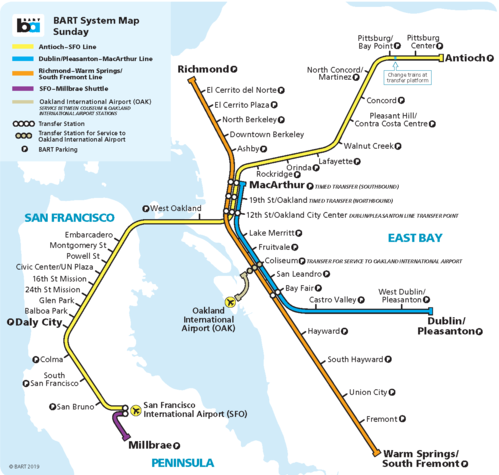
Millbrae Shuttle Service weekdays and Saturday:













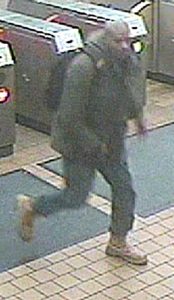 The BART Police Department is releasing new information about the killing of 19-year-old Carlos Funez-Romero, who was fatally shot aboard a BART train stopped at the West Oakland Station on January 9, 2016. The department is also announcing the reward for information leading to the arrest of the suspect is being increased from $10,000 to $25,000. (See
The BART Police Department is releasing new information about the killing of 19-year-old Carlos Funez-Romero, who was fatally shot aboard a BART train stopped at the West Oakland Station on January 9, 2016. The department is also announcing the reward for information leading to the arrest of the suspect is being increased from $10,000 to $25,000. (See 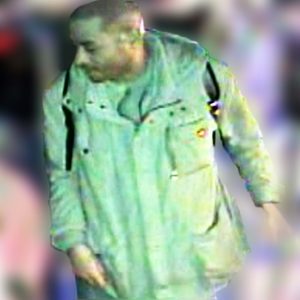
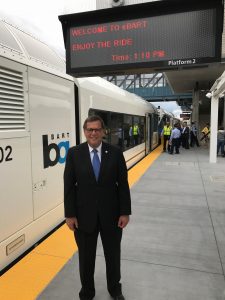
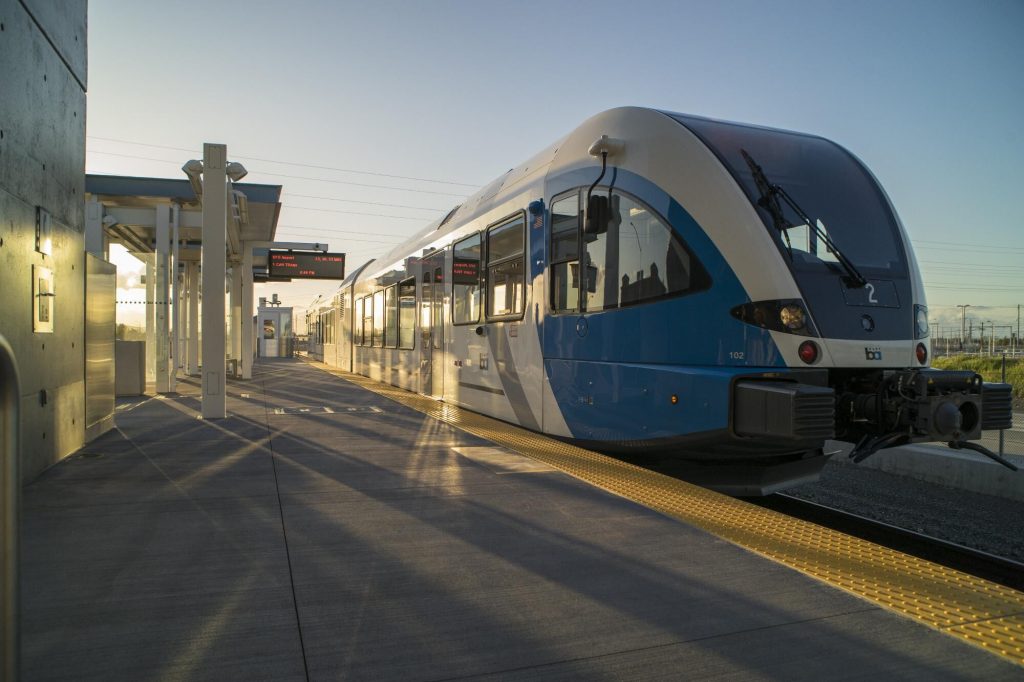
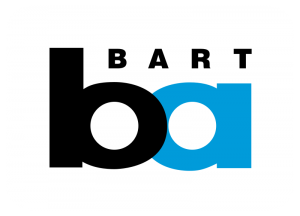 Rider safety will be the focus as the BART Board of Directors holds its Thursday, September 27th meeting at 5:00 P.M. at Pittsburg City Hall. The BART board voted in August to hold a special night meeting in a suburban location to further discuss General Manager Grace Crunican’s Safety and Security Action Plan.
Rider safety will be the focus as the BART Board of Directors holds its Thursday, September 27th meeting at 5:00 P.M. at Pittsburg City Hall. The BART board voted in August to hold a special night meeting in a suburban location to further discuss General Manager Grace Crunican’s Safety and Security Action Plan. From BART.gov
From BART.gov














